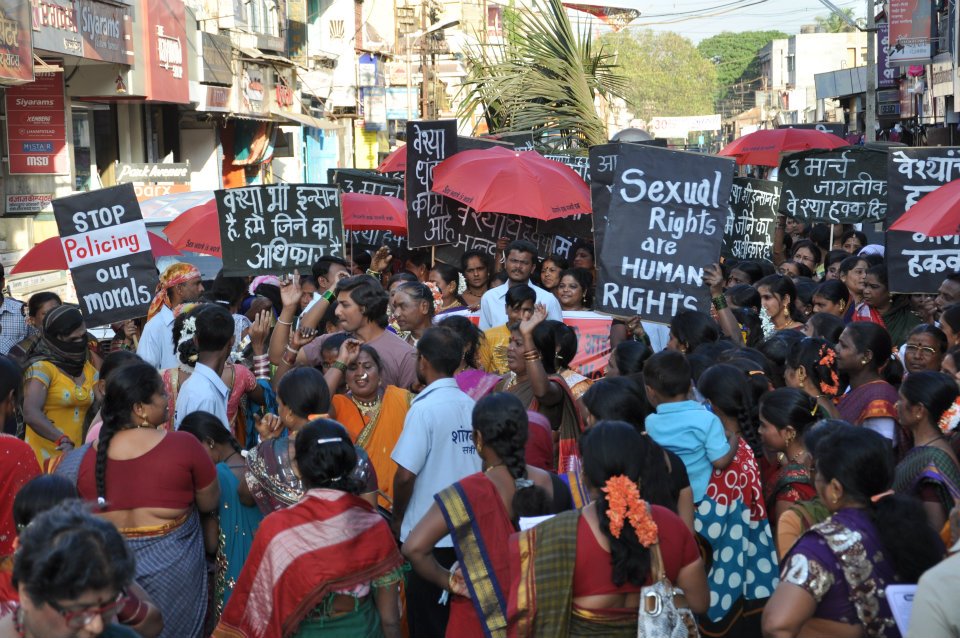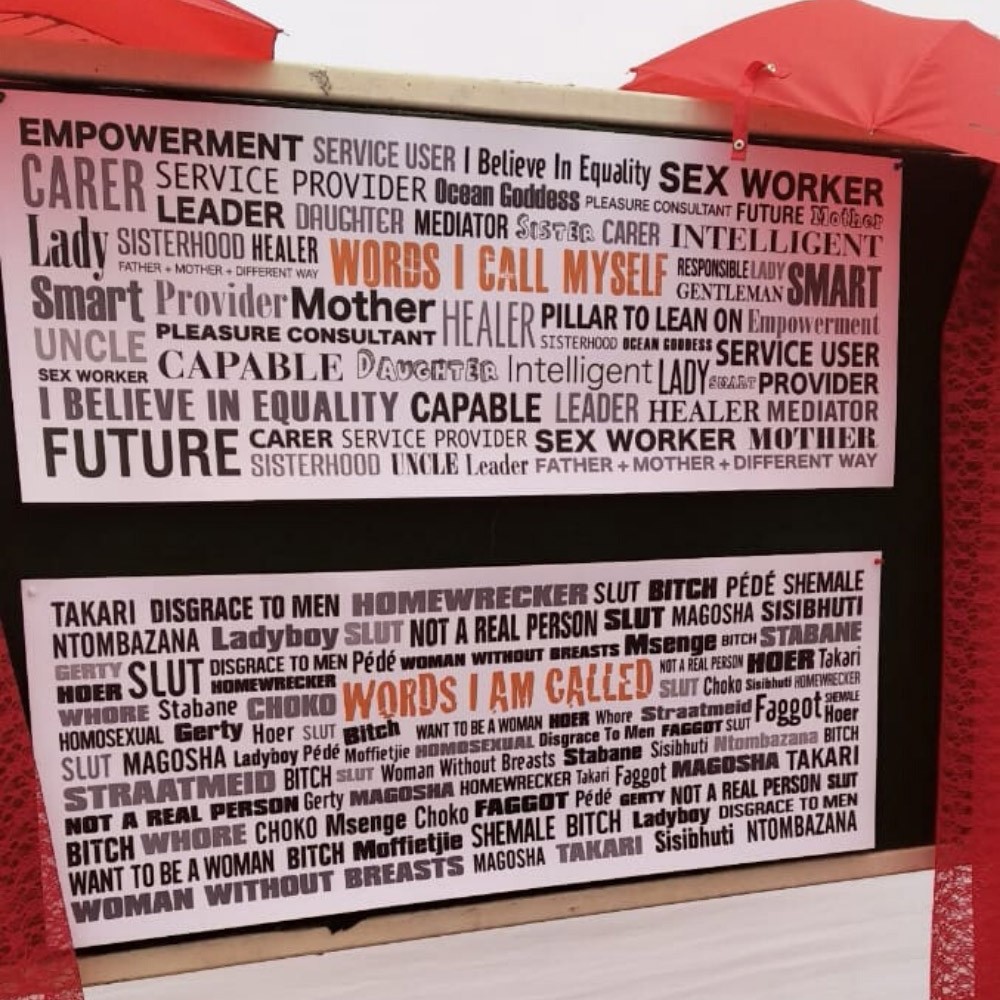Sex Workers’ Rights
Society thinks this is ‘bad work’, but I think this is ‘good work’, because we use this work for the betterment of our children, their future, etc. This is like any other work, especially when we do it by [our] own free will. We should have rights, facilities, etc, like pension, like anyone else.
Sex worker | National Consultation on Strengthening Partnerships for Advancing Sex Workers Rights in October 2017, New Delhi
CREA envisions a world in which all women* are counted in and are equally able to exercise their rights. Women* often face violence and discrimination as well as exclusion that denies their participation, leadership, and services because of their race, caste, ethnicity, class, gender, sexuality, marital status, religion, and work.
With increased global attention and resources to preventing and addressing trafficking in persons, there is a push for increasingly carceral responses. Unfortunately these discourses have resulted in the conflation of voluntary sex work by adults with trafficking involving deceit, coercion or force, at a policy level. This has led to a strong push for further criminalization of sex work in regional and national legal and policy debates primarily driven by legislative and policy reform. At the same, a tremendous mobilization of sex workers worldwide has garnered visibility for their demands for the recognition of sex work as work and that all aspects of sex work be decriminalized.
CREA allies, collaborates with, and supports sex worker-led collectives, unions and groups both nationally and globally to demand full decriminalization of all aspects of consensual sex work and human rights, including labor rights, for all people in sex work. Through various activities, it seeks to address the conflation of trafficking with sex work that is counter to sex workers’ rights, and to challenge the stigmatization and exclusion of sex workers in women*’s rights movements.
CREA was one of the few feminist groups to have allied with sex worker’s rights movement over 15 years ago, and continues this long-standing commitment. CREA has helped to initiate and support several collaborative efforts to ensure strong feminist support for sex workers’ rights.
In March 2009, CREA partnership with SANGRAM’s Centre for Advocacy on Stigma and Marginalization (CASAM) held a global dialogue “Ain’t I a Woman” that brought together activists from the women’s movement and the sex workers’ movement to discuss the violence faced by sex workers, why it is ignored by the women’s movement, and how it can be addressed by anti-violence against women campaigns. Read about the global dialogue here.
In 2011, CREA held a conference “Count Me In!” that brought together sex workers, sexual and gender diverse communities, and women with disabilities, into conversation with each other. The conference surfaced the myriad of issues facing trans and lesbian women, women with disabilities, and sex workers in South Asia.

Currently, CREA is a member of the Sex Worker Inclusive Feminist Alliance (SWIFA), which includes Amnesty International – International Secretariat, FEMNET, Global Alliance Against Traffic in Women (GAATW), Global Network of Sex Work Projects (NSWP), International Women’s Rights Action Watch Asia Pacific (IWRAW Asia Pacific), Women’s Global Network for Reproductive Rights (WGNRR). The Sex Worker Inclusive Feminist Alliance (SWIFA) works to align rights-affirming positions on sex work across the UN system, support sex worker-led organisations’ engagement with UN Treaty Bodies and Special Procedures, and facilitate engagement of sex workers within women’s movement spaces.
CREA has also sustained engagement with the Convention on the Elimination of All Forms of Discrimination Against Women (CEDAW) and United Nations Commission on the Status of Women (UN CSW) regarding recognition of sex workers’ rights, inclusion of sex workers’ priorities in mainstream feminist and women’s rights agendas, de-conflation of voluntary sex work by adults from trafficking in persons, and demanding decriminalization of all aspects of sex work.
Through nearly two decades of collaborative work on advancing sex workers’ rights, CREA and its partners have created unique spaces for dialogues between sex worker-led organizations, with women’s rights organizations and donors. Through its various Institutes, CREA continues to bring sex worker rights issues to the fore and influence women’s rights activists to recognize adult consensual sex work as work.
To learn more about CREA’s work check out CREA’s page on the Count Me In! Consortium it is part of or click here for the full website.
To read more about sex worker’s rights and the movement click here for more resources and factsheets.
*CREA uses “women” broadly to include lesbian, bisexual, and queer persons, intersex, trans, gender non-conforming and gender non-binary persons.



